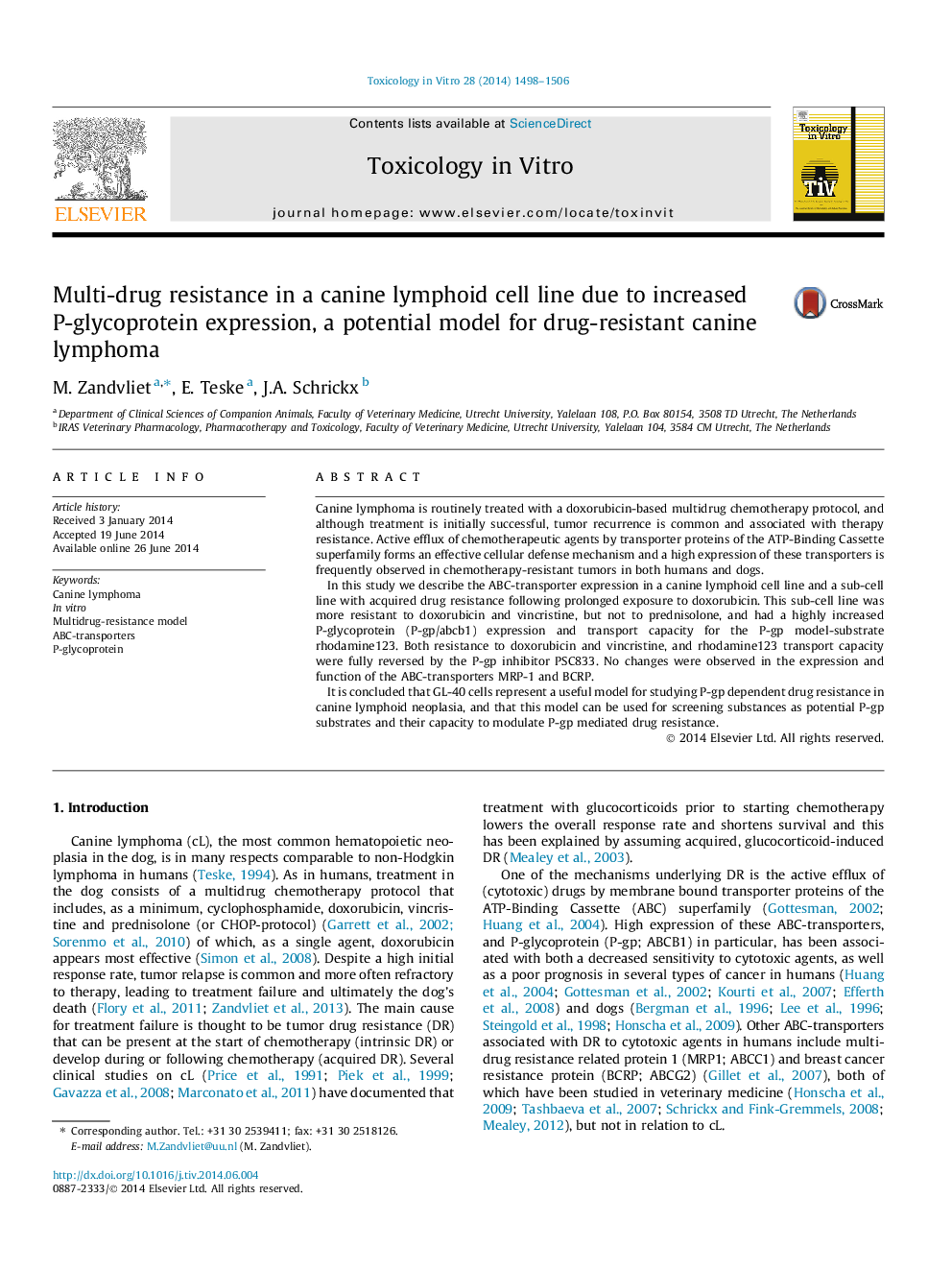| Article ID | Journal | Published Year | Pages | File Type |
|---|---|---|---|---|
| 5861860 | Toxicology in Vitro | 2014 | 9 Pages |
â¢Multidrug resistance of tumor cells can result from overexpression of ABC-transporters like P-gp.â¢Canine P-gp mediates resistance to doxorubicin and vincristine.â¢Prednisolone is neither a substrate, nor an inducer of canine P-gp.â¢GL-40 cells are a suitable model for studying multidrug resistance in canine lymphoma.
Canine lymphoma is routinely treated with a doxorubicin-based multidrug chemotherapy protocol, and although treatment is initially successful, tumor recurrence is common and associated with therapy resistance. Active efflux of chemotherapeutic agents by transporter proteins of the ATP-Binding Cassette superfamily forms an effective cellular defense mechanism and a high expression of these transporters is frequently observed in chemotherapy-resistant tumors in both humans and dogs.In this study we describe the ABC-transporter expression in a canine lymphoid cell line and a sub-cell line with acquired drug resistance following prolonged exposure to doxorubicin. This sub-cell line was more resistant to doxorubicin and vincristine, but not to prednisolone, and had a highly increased P-glycoprotein (P-gp/abcb1) expression and transport capacity for the P-gp model-substrate rhodamine123. Both resistance to doxorubicin and vincristine, and rhodamine123 transport capacity were fully reversed by the P-gp inhibitor PSC833. No changes were observed in the expression and function of the ABC-transporters MRP-1 and BCRP.It is concluded that GL-40 cells represent a useful model for studying P-gp dependent drug resistance in canine lymphoid neoplasia, and that this model can be used for screening substances as potential P-gp substrates and their capacity to modulate P-gp mediated drug resistance.
